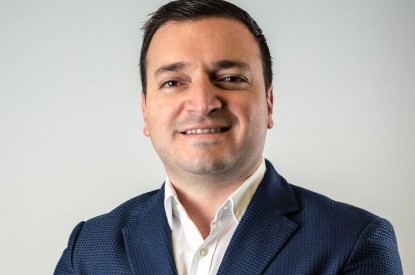Pulse
The future of Latin American sports betting
By William - 20 ta' April 2020
Ahead of his appearance at the SBC Digital Summit, G3 interviews JD Duarte, CEO of Betcris, about the Latin American sports betting market, Brazil’s potential and how to engage fans from Mexico to Argentina.
What is Betcris’ background in the Latin American market?
Betcris is a Costa Rican sports betting company that was one of the first to focus on the Latin market. Betcris began operating between 2005 and 2006 in Mexico, Panama, and Venezuela, amongst others. In late 2007, Betcris obtained a license from the Malta Gaming Authority and initiated operations in other Latin markets including Ecuador, Peru, and Guatemala. In the following period up until 2010, the company concentrated on growing the markets in which we operated. This was a challenge because whilst the public is passionate about sports, sports betting was not a well-known activity in the region. In 2010, the opportunity to start operations in Honduras was taken and later in 2015 Betcris absorbed a brand in the Dominican Republic, expanding the business to countries such as Jamaica and taking up a new challenge as a supplier to the National Lottery of Ecuador.
Between 2016 and 2018, operations began in El Salvador and with Equestrian Agencies in Argentina. The mobile app was also launched and operations began on the Asian continent, specifically in the Philippines, where we opened multiple retail locations and obtained the exclusivity of operating sports bets in one of the main casinos in Asia. In the same year, our Asian headquarters were established to support this expansion.
In 2019, we became the Official Sponsor of the Mexican national soccer team (El Tri), signing Ronaldinho as our brand ambassador and becoming sponsors of the Copa América. Undoubtedly, this was the effort of a great team and the proposed goals established at the very outset have been met.
How is the Latin American sports betting market shaping up? Who are the key players and emerging territories?
The Latin market will take a very important place in the coming years, with multiple countries in the process of regulation. The Colombian national regulator is in the process of regulating the markets of multiple countries with the support of the Colombian federation of entrepreneurs of luck and chance games, Fecoljuegos. This is crucial for future operations, with LOTBA (LOTBA is authorised in the city of Buenos Aires for the control of all games of chance and manages the auditing of the Casinos de HAPSA (Hipòdromo de Palermo), Casino Buenos Aires (boats) and all official daily games agencies) serving as another entity which opens doors to operators to formally apply. More countries and regions will soon be joining the process of regulation, including the province of Buenos Aires, Peru, Brazil, Panama, Puerto Rico and more.
In recent years, many emerging Latin, European and American companies have become interested and are looking to become a part of the market’s expansion which undoubtedly enriches the field. Though these companies have a lot of experience, they will have a great challenge understanding the market. To speak at this moment of main players or key players is premature, but without a doubt, in the next two to three years, the market itself will oversee establishing these.
How does sports betting in Latin America differ from Europe?
The bets themselves are not so different at the product level but the behaviour of each country and idiosyncrasy is very different. Some countries are more tailored towards specific sports like baseball and soccer, but, as time passes and there is greater access to international information and transmission of sporting events, we will one day find Latino players betting on ice hockey. Consumption is becoming more and more varied and the Latino market is very particular.
What differences are there between betting markets across Latin American countries? How does player behaviour differ from one market to the next?
The differences are vast even between regions within a country. For example, Mexico consumes sports in the north very different to the manner it is consumed in Mexico City.
In general, the popularity of sports and leagues depends on factors such as access to technology, purchasing power, geographical area, and if any local athlete plays in an international league. You often see consumption patterns observed in several countries at the same time.
There are also massive non-regular events like the Olympics or the World Cup where new players types of player appear.
How do you engage sports fans from Mexico to Argentina? How important is it to localise your marketing strategy?
The marketing strategy regardless of the country should be a combination of an international and local approach. The sports betting player of today follows different leagues from various countries and is highly informed, unlike 10 years ago. Information is immediate and social networks have a great influence, together with multiple information services such as applications and digital press. Combining efforts in mass media, networks, advertisements in stadiums, TV, radio, and word of mouth is crucial. At Betcris we prioritise the customer experience and push this message through these channels.
What growth potential does Brazil hold? With the rollout of Brazil’s new regulatory framework delayed, what is the regulatory outlook?
The potential of a market like Brazil, where we are talking about a population of approximately more than 209 million inhabitants that live and breath sport by tradition from the cradle, the projections and expectations are very high. It is even said that it doubles that of the Spanish market. Brazil is currently estimated to have a trading volume of a legal gambling market of about $4 billion, as well as an illegal estimate of about $6 billion.
These figures undoubtedly make the Brazilian market one of the most interesting in the region. Currently, the government is working on projects to regulate activity and we hope to follow a path where activity is good for all, both government and operators, and thus be able to offer a better product and prizes for the final consumer. An unbalanced regulatory scheme directly affects the consumer themselves, as in most consumer schemes.
Betcris, before the regulatory process even began for the Brazilian market, has prepared internally. Some preparations have already been implemented and others are in the process of implementation, albeit not specifically for this single regulated market but for several in the region.
What is the future of sports betting in Latin America? What innovations should we be looking out for?
The future of sports betting in the Latin market will be an increase in the variety of products that we can offer consumers. We are in a generational change in consumption patterns for new young adult customers, with an interest not only in traditional sports betting but also combining other products and trends derived from sports. For the company, innovating is also adapting and that has always been and will continue to be a guideline for Betcris. Integrating our offer and meeting consumer needs to ensure our products are liked and maintained over time is crucial.



